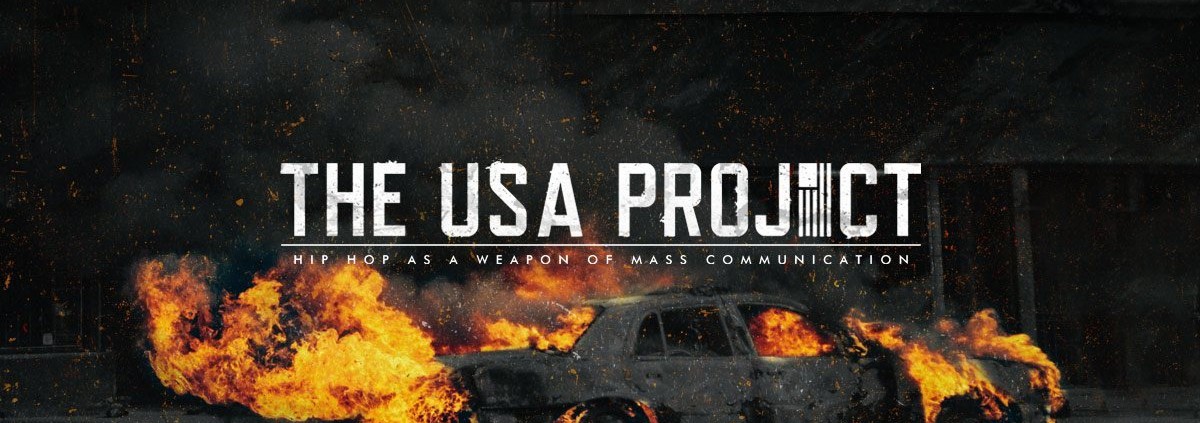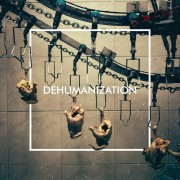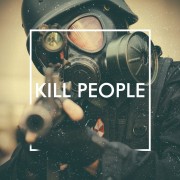Inverted Totalitarianism, Superpower, And Managed Democracy
Sheldon Wolin is Professor of Politics, Emeritus, at Princeton University.
Inverted Totalitarianism
- A new type of political system driven by abstract totalizing powers; one that succeeds by encouraging political disengagement rather than mass mobilization; relies more on “private” media than on public agencies to disseminate propaganda reinforcing the official version of events
- Not governed by personal rule (is largely independent of any particular leader and requires no personal charisma to survive); the leader is not the architect of the system but its product; its model is the corporate “head,” the corporation’s public representative
- Has emerged imperceptibly, unpremeditatedly, and in seeming unbroken continuity with the nation’s public traditions
- A system which professes to be the opposite of what it is; disclaims its real identity, trusting that its deviations will become normalized as “change”
- Reflects the belief that the world can be changed to accord with a limited range of objectives (i.e. ensuring that its energy needs be met, that “free markets” be established, military supremacy maintained, “friendly regimes” be in place considered vital to its own security and economic needs)
- Promotes “managed democracy” worldwide – a political form in which governments are legitimated by elections they have learned to control
- Enthusiastically exports culture and jobs while missing no opportunity to weaken trade union power at home and abroad
- Evinces no interest in abolishing the system that enables them to maximize power: a free politics, under the right conditions and controls, interposes no barriers to their kind of totalizing power – the “right conditions” refers to the porousness of institutions that enables a different form of power – one ostensibly nonpolitical in its origins, unbound to constitutional limits or to democratic processes (call it “corporate power”) – to turn access or simple influence over legislators and policy-makers into copartnership – the incorporated state
- Does not require as the condition of its success the overthrow of the established system; has no plan to suppress all opposition, impose ideological uniformity or racial purity, or seek the traditional form of empire; allows free speech, venerates the Constitution, and operates within a two-party system that, theoretically, secures a role for an opposition party; does not depend upon resentments against the prevailing form of government or social system
- Disclaims its identity; detaches democratic myths from democratic practices enabling mythology, passivity, and empty forms to serve a type of totalitarian regime
- Evolves from “strong democracy” instead of a “failed” one
- Exploits what appear to be formidable political and legal constraints, using them in ways that defeat their original purpose without dismantling or overtly attacking them; exploits institutions to facilitate certain favored forms of power while checking rival ones
- Wields total power without appearing to (without establishing concentration camps, enforcing ideological uniformity, forcibly suppressing dissident elements so long as they remain ineffectual); seeks to preserve an economy of fear and not saturate the market (ensuring domestic tranquility)
- Economics dominates politics; what seem like reductions in state power actually increase it; power is exercised in a context where the participants know their cues
- Replaces a politically engaged citizenry with legislative institutions design to “stand in” for the people; creates a system of “misrepresentative or clientry government”; eliminates direct connections between the citizen and government; relegates the political existence of the citizenry to a shadow-citizenship of virtual participation during the intervals between elections
- Promotes demobilization making it difficult to form coherent majorities around common beliefs
- Is the true face of Superpower; represents a blend of powers comprising the business corporation, the organization of science for continuous advance, and the systematic conversion of new scientific knowledge into new technological applications, esp. military ones; each of these powers is a presumption of virtually limitless development, a dynamic which governs economic behavior, the pursuit of knowledge, the production of culture, and military weaponry
- Radically opposes democratic conceptions of power; both democracy and the political become distorted when the scales are continually expanded; an enlarged spatial scale both requires and promotes a technology of power that can make occupation and rule effective
- Is legitimated and fueled by an ideology; ideology can be as vital a part of the technology of power as any mechanical invention, provided it is a dynamic – that is, if it possesses a “thrust” forward in time to accompany the occupation of new space; reassures that the technology of power is guided by some higher principle
- Systematizes and exploits a dynamic complex of pre-existing powers to create the preconditions for Superpower: the availability of a totalizing technology of power and an accompanying ideology that encourages the regime’s aspirations to global domination; the primary power complexes include the state, corporate economic power, the powers represented in the integration of modern science and postmodern technologies, a military addicted to technological innovation, and a religious fundamentalism that is no stranger to politics and markets
- Is a dynamic complex of powers – powers which constantly supersede their own previous limits and are totalizing in the sense that infinity, or the persistent challenging of the constraints of existing practices, beliefs, and taboos, rather than simple superiority, is the driving force; this force is accompanied by a systematic effort to establish the conditions that facilitate power and eliminate those which interfere
- Culturally embedded memetic structures seeking complete control over organization (infinity)
- The systematic effort is enacted through human agents
- It coexists easily with a culture of softness, indulgence, and fantasy
- Has a revolving door; a dual system of state and corporate power where individuals share experience in government and are intimately familiar with the inner workings of the corporate world
- Thrives on a politically demobilized society, that is, a society in which the citizens, far from being whipped into a continuous frenzy by the regime’s operatives, are politically lethargic; political futility is systematized and apathy results as a political response
- Aims at fashioning followers rather than citizens by furnishing substitutes such as “consumer sovereignty” and “shareholder democracy” that give a “sense of participation” without demands or responsibilities; prefers a citizenry that is uncritically complicit rather than involved
- Crystallizes by providing a stimulus to rouse the apathetic just enough to gain support and obedience; the threat of terrorism supplies this element, evoking fear and obedience on demand without causing paralysis or skepticism
- Provides “politics all of the time” but a politics largely untempered by the political; absent is the “political,” the commitment to finding where the common good lies amidst the welter of well-financed, highly organized, single-minded interests
- Evolves as a scarcely noticeable and undramatic convergence of tendencies and unintended consequences with no abrupt discontinuity; a historically rooted (i.e. corporate powers of the 1800s, …); unprecedented in its union of corporate and state power (systemization and the shared culture of partners)
- Begins to crystallize amidst the affluence of the world’s most dynamic economy; creates an economy of fear, a system of control whose power feeds on uncertainty, yet a system that, according to its analysts, is eminently rational
- Cultivates a loyal intelligentsia (intellectuals, scholars, and researchers) of its own through a combination of governmental contracts, corporate and foundation funds, joint projects involving university and corporate researchers, and wealthy individual donors
Superpower
- Is the union of state and corporation in an age of waning democracy and political illiteracy
- Has its own “constitution,” its own “more perfect union.” Its constitution is about powers whose scope and influence derive from available resources, opportunities, and ambitions, rather than legal limits. Its composition is meant for “increase,” not constraint – not based on the intentions of the framers but on the unlimited dynamic embodied in the system whereby capital, technology, and science furnish the sources of power – has no inherent political authority, the constitution for preservation has limited authority while its actual power is dependent upon those who operate the constitution for increase – these two constitutions, one for expansion, the other for containment, form the two sides of inverted totalitarianism
- Depends upon the symbolic relation between two elements – one political, the other economic.
- Empire – consists of large military might, of bases scattered throughout the globe, of arms sales, of alliances and treaties with comparatively weak client states – has only customers and clients, dominated markets instead of incorporated provinces
- The Globalizing Corporation – brings to foreign countries economic goods and services as well as the softening power of cultural influences and products
- These elements transform the “homeland” from a self-governing, predominantly inward looking political society into a home base for international economic and military strategies
- The “dynamic powers” of science, technology, and capital (vital to the imperial reach and the globalizing drive of corporations) are the basis of the new system of power – politics and governance are a strategy based upon the powers that technology and science (including psychology and the social sciences) have made possible – exploitation of these powers enables their owners to redefine the citizenry as respondents rather than actors, objects of manipulation rather than autonomous
- A key feature of these “dynamic powers” is their distance from the experience of ordinary beings
- Insulating status ascribed to imperial affairs, the secrecy and inhibitions beginning to envelop domestic politics and the operations of globalizing corporations have the net result of excluding the public from a deliberative role in each and all of the major preserves of modern power – the demos is free to enjoy the results of its exclusion but as no claim to significant political power – thus democracy, like empire and globalization, gains a universal status, but what it universalizes is not the practice of self-governing democracy but American power
- State power not only relies upon corporate power for the conversion of scientific advances into technological achievements but depends heavily on corporate personnel for policy advice and managerial skill
- The political is managerialized – politics, elections, and the operation of governmental departments and agencies are routinely considered managerial rather than political skill
- Results in a decline of public ethic and ideal of civil service
- Corporation and state are indissolubly connected – privatization becomes normal and state action in defiance of corporate wishes the aberration
- An attempt at reconstituting the nation’s identity (not just a system of aggrandizing power)
- Signifies form-free power, sophisticated and “advanced”
- Cannot mean “government by the people”
- Not practically because the global “responsibilities” of Superpower are incompatible with participatory governance
- Not theoretically because the powers that make Superpower formidable to not derive either from constitutional authority or from “the people”
- The condition for the ascendance of Superpower is the weakening or irrelevance of democracy and constitutionalism, except as mystifications enabling Superpower to fake a lineage that gives it legitimacy
- Represents a substantive transformation where a corporate or economic model of governance is superimposed upon a political form whose constitution consisted partly of republican, antipopulist elements and partly democratic elements
- Depends on censorship of popular protest and other mechanisms to isolate democratic resistance, insulate society from hearing dissonant voices, and hurry the process of depoliticization
- Terrorism, power without boundaries, becomes the template for Superpower; the measureless, the illegitimate, becomes the measure of its counterpart
Managed Democracy
- The application of managerial skills to the basic democratic political institution of popular elections
- The expansion of private (i.e. mainly corporate) power and the selective abdication of governmental responsibility for the well-being of the citizenry
- Not driven by desire to control, but from the realization that governance can be accomplished thru “private” mechanisms largely divorces from popular accountability and rarely scrutinized for their coerciveness
- Free market – not simply about buyers and sellers or producers and owners, but about power relationships that are fundamental to the management of democracy
- The union of corporate and state power means that instead of the illusion of a leaner system of governance there is a more extensive, invasive system – one removed from democratic influences and hence better able to manage democracy
- Depends upon managers – managers are the product and creation of corporate culture
- Corporate culture is the norms and practices operative at various levels of the corporate hierarchy that shape or influence the beliefs and behavior of those who work in a particular institutional context – not confined to the corporation
- Requires a process by which “extreme” views are filtered and control rests with a favored guardian group, the “right people,”
- Capable of exporting democracy – states (and their ruling classes) are preselected by the conquerors and rewarded with being the first to gain a foothold in power – they are expected to produce the political structures of a democracy in which power is distanced from the people in whose name it is to be exercised











